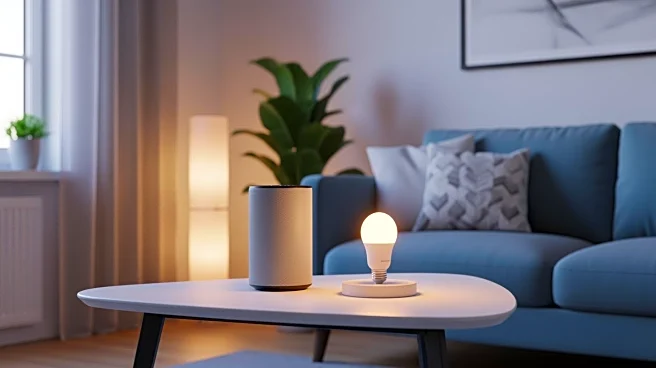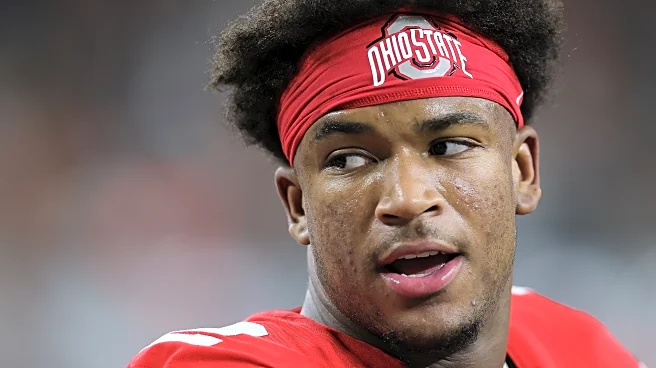What's Happening?
Smart home technology is increasingly accessible to renters, offering a range of devices that enhance living spaces without requiring significant modifications or landlord permissions. These devices include
smart plugs, speakers, bulbs, air quality monitors, and security systems, which can be easily integrated into rental properties. Smart plugs, for instance, allow renters to automate appliances and monitor energy usage without permanent installations. Smart speakers provide voice command capabilities and can connect to other smart devices, enhancing convenience and entertainment options. Additionally, smart bulbs offer customizable lighting solutions, while air quality monitors help maintain a healthy living environment. Security systems like Arlo's all-in-one sensors provide comprehensive monitoring without extensive setup, making them ideal for renters. These technologies offer practical solutions for improving safety, comfort, and efficiency in rental homes.
Why It's Important?
The availability of smart home devices for renters is significant as it democratizes access to advanced technology, allowing tenants to enjoy the benefits of a smart home without the need for permanent installations. This trend reflects a shift towards more flexible and adaptable living solutions, catering to the growing population of renters who seek modern conveniences. By providing options that enhance security, energy efficiency, and overall living quality, these devices can improve tenant satisfaction and potentially increase rental property appeal. Moreover, the integration of smart technology in rental properties can lead to broader adoption of sustainable practices, as renters become more aware of energy consumption and environmental impact. This development is crucial in fostering a culture of innovation and sustainability within the housing market.
What's Next?
As smart home technology continues to evolve, renters can expect more advanced and affordable options to become available. Companies may focus on developing devices that offer greater interoperability and ease of use, further simplifying the integration process for tenants. Additionally, landlords and property managers might begin to recognize the value of smart technology in attracting and retaining tenants, potentially leading to partnerships with tech companies to offer pre-installed smart devices in rental units. This could also result in new rental agreements that accommodate the use of smart technology, balancing tenant autonomy with property management concerns. The ongoing development of smart home technology is likely to drive innovation in the rental market, creating new opportunities for both renters and landlords.
Beyond the Headlines
The rise of smart home technology for renters also raises questions about data privacy and security. As more devices become interconnected, the potential for data breaches and unauthorized access increases, necessitating robust security measures and clear privacy policies. Renters must be aware of the implications of using smart devices, including how their data is collected, stored, and shared. This development highlights the need for greater transparency and accountability from tech companies, as well as informed decision-making by consumers. Additionally, the widespread adoption of smart technology may influence cultural perceptions of homeownership, as renters experience similar benefits without the long-term commitment of owning a property.









